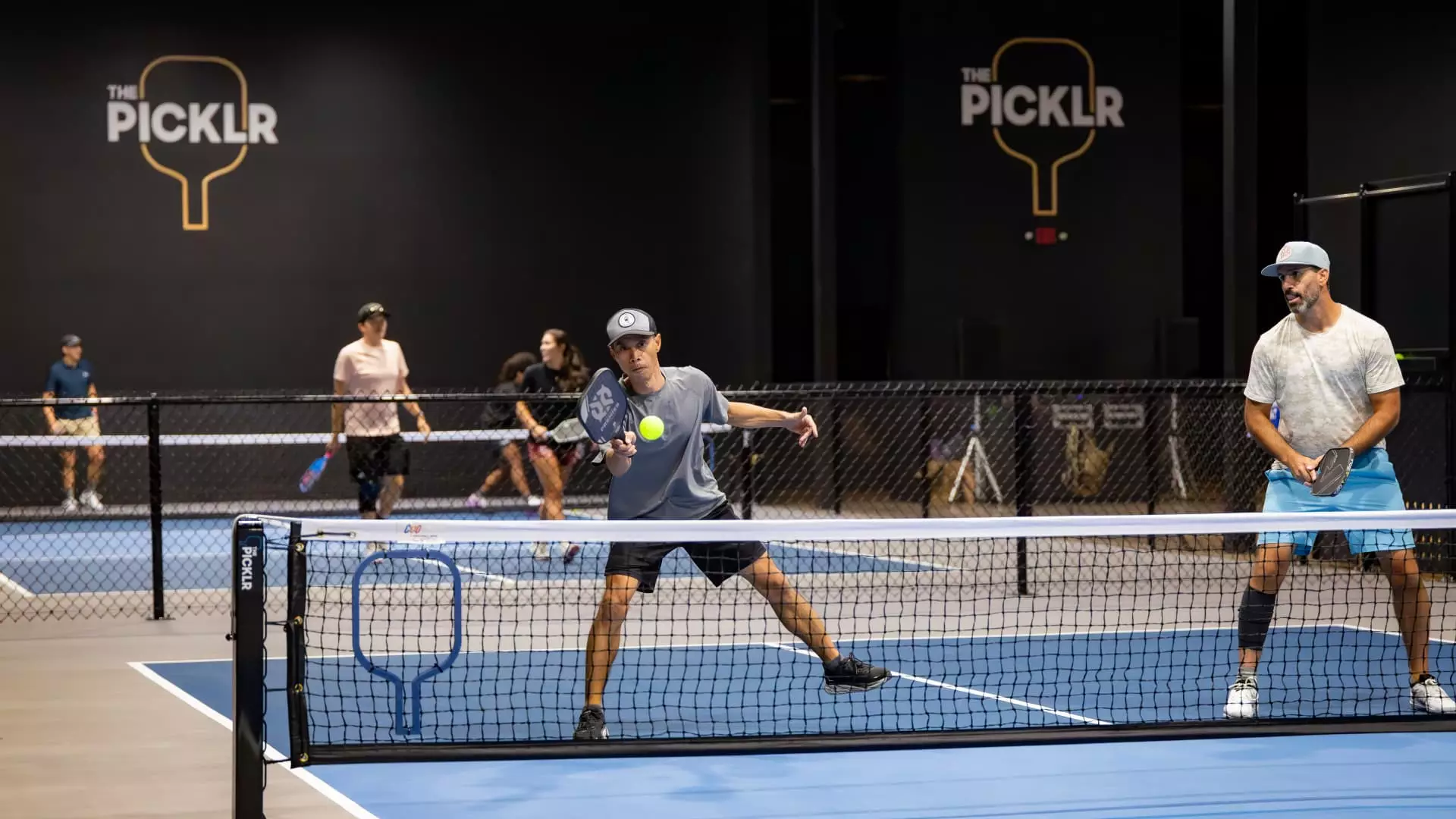In a move that may significantly reshape Japan’s recreational landscape, The Picklr is set to establish its expansive network of indoor pickleball clubs across the nation. This bold ambition is not just about introducing a new sport but is indicative of an evolving cultural shift that embraces community, health, and competition. With an aggressive strategy for growth, CEO Jorge Barragan acknowledges that the allure of pickleball goes beyond simple sport; it captures the essence of community engagement and active living, both of which resonate profoundly in Japanese society.
Understanding the Surging Popularity: Over 20 Million Fans in the U.S.
The statistics are staggering. In recent years, pickleball has witnessed a phenomenal participation increase of 223%, earning the title of the “fastest-growing sport” in America. This surge can be attributed to several factors: it’s accessible, social, and most importantly, it builds a sense of community amongst players. For The Picklr, the establishment of 20 new locations within five years signifies an acute awareness of these qualities. Most clubs will cater to a thriving membership base of approximately 500-700 players, an indicator that this sport is not merely a passing fad.
As Barragan pointedly remarks, the enthusiasm surrounding pickleball doesn’t appear to be waning. This trend is crucial for Japanese culture, which prioritizes collective activities that foster camaraderie. The rapport developed through engaging in a sport like pickleball could serve as a revitalizing focal point for local communities across the islands.
Japan’s Readiness for Sport and Community Enrichment
Japan stands uniquely poised to adopt this burgeoning interest in pickleball. As Barragan emphasizes, the country is “ready and primed” for such growth. Traditional Japanese values emphasize health consciousness and an affinity for racquet sports, making pickleball an ideal candidate for introduction. The first Picklr facility is set to open in the bustling Tokyo metro area, a strategic choice that taps directly into the heart of urban life where community integration is paramount.
The intent behind this venture isn’t solely commercial; it represents a deeper desire to cultivate social bonds in an increasingly isolating world. Nano-level interactions—where players can engage in friendly competition—have the potential to reignite interpersonal relationships that modern life has frayed.
The Significance of Franchising: A Model for Growth
The strategic partnership with Nippon Pickleball Holdings marks The Picklr’s entrance into an international market that can potentially set a standard for franchising elsewhere. By selling over 500 franchises slated to open in various countries, including Japan, The Picklr shows its confidence in the global appeal of pickleball. It’s worth noting that Barragan is not simply banking on established demand; he is intentionally fostering it.
This franchise model not only harnesses the benefits of local expertise but also positions the bite-sized sport to gain traction among a broader audience. With pickleball leagues cropping up internationally, the viability of a global movement is a thrilling prospect rooted in The Picklr’s business acumen.
No Slowdown in Sight: The Future of Pickleball
As the professional pickleball leagues scout international opportunities, it’s hard to ignore the palpable excitement surrounding the sport’s global proliferation. Barragan reports over 220 leads monthly, a direct reflection of the interest and curiosity surrounding the game internationally. If this trend continues, it is certain to elevate pickleball from the recreational courts to mainstream popularity.
To dismiss this growth as mere market noise would be short-sighted. Can Japan, with its deep-seated respect for tradition, adapt quickly to the inherently playful yet competitive nature of pickleball? The answer lies not just in the success of The Picklr’s venture but in a cultural renaissance that embraces sporting unity. As pickleball takes root in Japan, its impact may ripple far beyond the game itself, reshaping how communities interact, engage, and thrive.


Leave a Reply